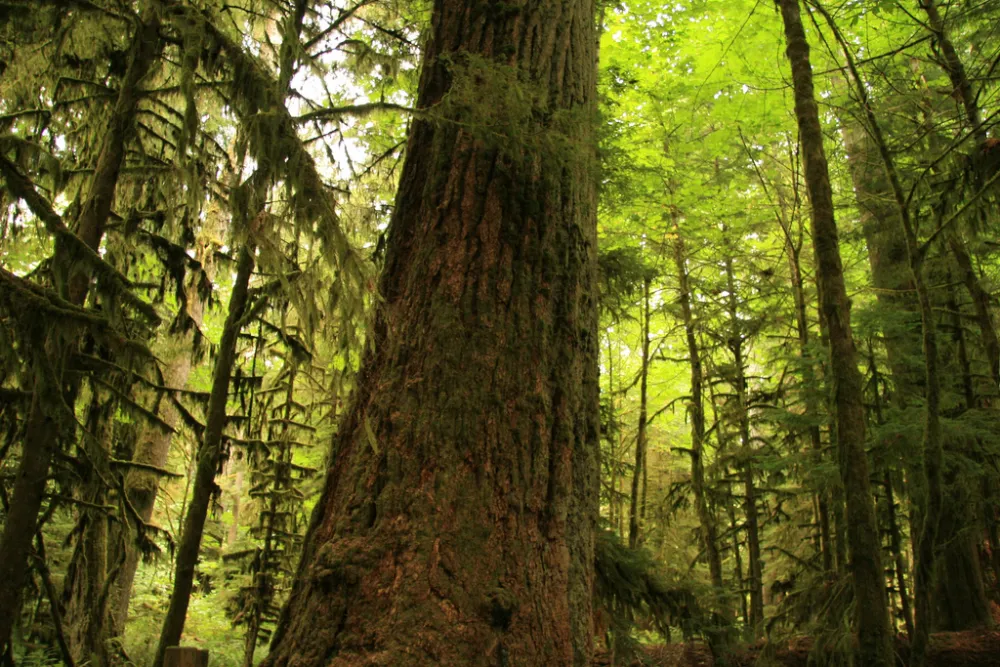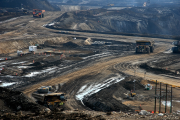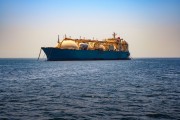When British Columbia’s environment minister, Mary Polak, was in Lima, Peru, for global climate change talks, among her objectives was sharing lessons from the province’s experience with climate policy and building support for a positive outcome next year in Paris.
This is exactly what jurisdictions with effective climate policy should be doing.
Regions like B.C., California, Quebec and Ontario offer tangible examples of how cutting carbon pollution can go hand-in-hand with economic prosperity. Sharing those successful climate policies demonstrates that global climate change solutions are within reach.
The OECD refers to British Columbia’s carbon tax as a “textbook example” of good climate policy.
Take B.C.’s carbon tax as an example. Since the tax was implemented in 2008, 15 new carbon-pricing policies have been implemented around the world and more are promised for 2015 and 2016. Obviously B.C. isn’t the only reason jurisdictions like France, Japan and California have moved ahead with carbon pricing, but it’s hard to imagine they didn’t take notice — especially when the OECD refers to B.C.’s carbon tax as a “textbook example” of good climate policy.
B.C.’s climate policy success
B.C. successful efforts to cut carbon pollution stem from a package of policies that were implemented in 2007 through 2009. The province started by cancelling two planned coal-fired power plants and followed that with a requirement that new electricity supply be met almost entirely through improved energy efficiency and renewable energy.
The carbon tax and low-carbon fuel standard were implemented in the same time period. Both have now become central elements to the larger Pacific Coast Climate Action Plan that B.C., California, Oregon and Washington have jointly established.
The net results for B.C.’s climate policies have been encouraging, both economically and environmentally. The province met its 2012 interim target to reduce carbon pollution. Per capita use of fuels covered by the tax has been dropping relative the rest of the country. And the economy has fared well, outperforming the rest of Canada in terms of per capita GDP.
There is also a growing sector of clean energy and clean technology companies operating around the province. For example, analysis from consulting firm KPMG found 200 clean technology companies operating in the province, employing over 8,000 people and generating $2.5 billion in annual revenue, primarily from exports.
In short, there is much to like and emulate when you look at B.C.’s climate policies, and B.C. should be proud of sharing those successes.
Not all successes are created equally, however. Minister Polak has also been including the province’s liquefied natural gas (LNG) export aspirations as part of its climate success story in Lima, arguing that LNG will displace coal in Asia.
Unfortunately, the evidence doesn’t support this claim.
Recent research from the Pembina Institute and the Pacific Institute for Climate Solutions found that increasing the supply of LNG and natural gas won’t help solve climate change in the absence of strong climate policies.
Natural gas does have a role in a world with strong climate change policies, but that role is smaller than it would otherwise be — with global demand peaking in 2030 and declining below current levels by mid-century. B.C.’s approach to LNG doesn’t take away from the value of the good climate policy already implemented, but it does increase the province’s challenge of continuing its progress in the lead up to Paris and beyond.
What can B.C. do between now and Paris?
Since the middle of the year, the hints have been getting stronger that B.C. is ready to build on its initial successes. In July, the province’s 2014 Climate Progress report stated, “We have attained our first target and more action is needed to continue moving toward our longer-term goals.” Minister Polak has also spoken recently of the need for a “Climate Action Plan 2.0”.
Indications of what those additional actions could entail can be found in the commitments the province has made with California, Oregon and Washington under the Pacific Coast Climate Action Plan. Of note are promises of a big increase in the number of electric vehicles, as well as significant improvements in the energy efficiency of homes and buildings.
In addition to the commitments made with its Pacific coast partners, the province should strengthen its successful carbon tax and implement policy to reduce the methane released during natural gas production. There are also good opportunities to continue growing the clean energy and clean technology companies that will thrive in a world that is transitioning away from coal, oil and natural gas.
B.C.’s carbon pollution has dropped six per cent since 2007, but it’s projected to start rising again if climate policies aren’t strengthened.
Following through on these opportunities would help build international momentum toward a positive outcome in Paris. Those actions will also be critical in B.C. because, according to Environment Canada’s new Emissions Trends report, the province needs stronger policies if it is going to sustain its initial successes. B.C.’s carbon pollution has dropped six per cent since 2007, but it’s projected to start rising again if climate policies aren’t strengthened.
While there are clear challenges ahead, B.C. is well positioned to help build momentum toward a positive outcome in Paris next year. It has climate policies in place that are creating environmental and economic benefits. Those benefits give the province a platform to build upon going forward, and represent experience that the rest of Canada and the world can learn from.
This op-ed is Part 2 of a three-part series looking at how Western Canada can contribute to Canada’s efforts to reduce carbon pollution and thrive in a low-carbon economy. Read Part 1: How the West can help drive Canada's efforts on climate, or Part 3: Four ways Alberta could turn its climate record around.





